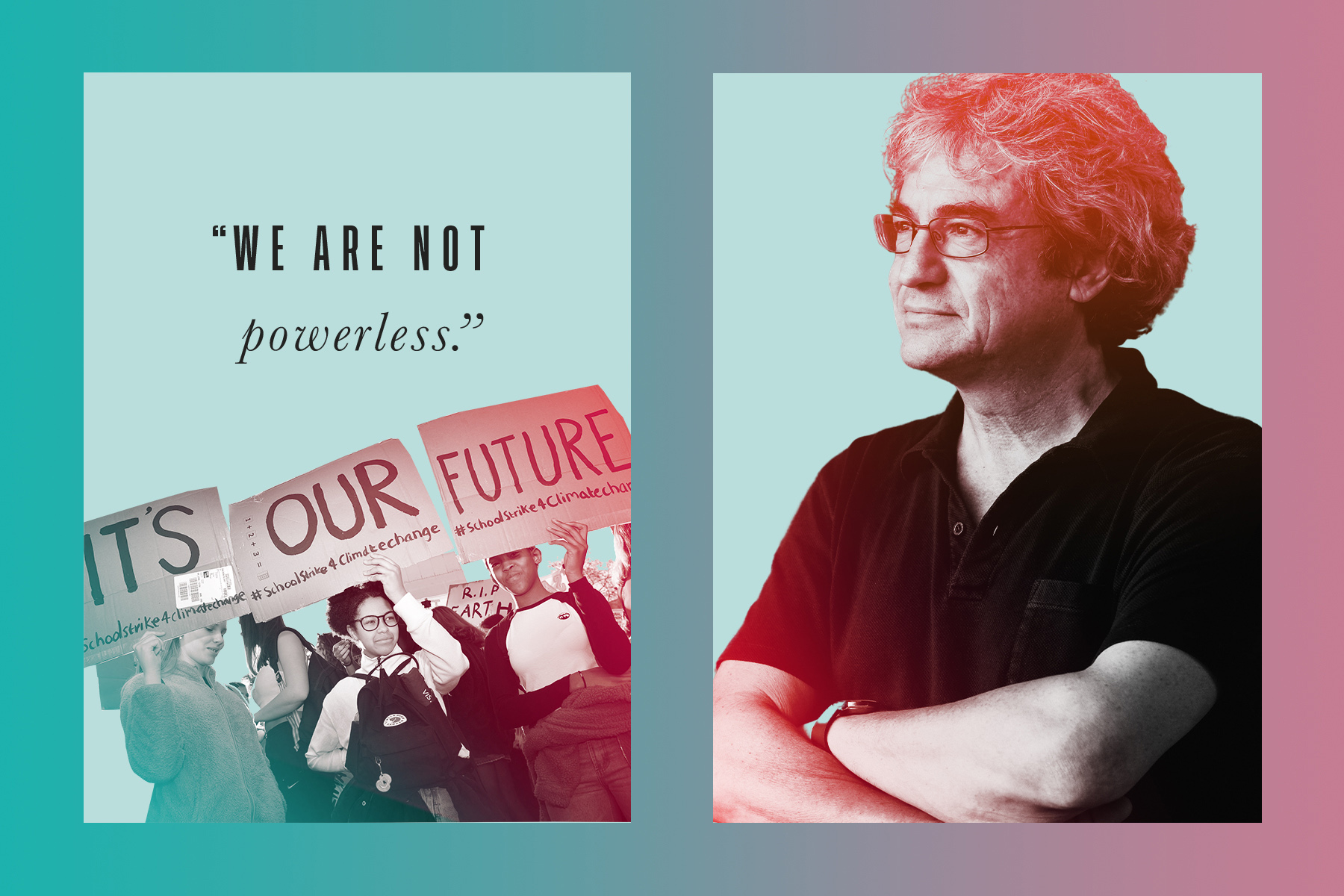
- Home |
- Search Results |
- Carlo Rovelli: My reasons for hope
Many things give me hope for the future.
All over the world, apart from in a few overly rich and psychologically depressed countries, I have met young men and women full of dreams, energy and smiles.
I have met young people who imagine a better world, and do not buy into the status quo. Young people who are ready to act for the good of all, who are generous, passionate and look far into the future.
Everywhere I have been, I have found young people who do not believe in patriotism, nations and boundaries, who think that their tribe is humankind, their home is the universe.
It gives me hope that the government of the country that is preparing to become the most powerful on Earth still has, in spite of everything, equality and socialism in its basic law and ideology.
It gives me hope to see an increasing number of young women and men everywhere on the planet realise there is no God, no gods; that religions are also tricks, and with this, have higher moral standards.
'We are not as powerful as we thought before the beginning of this pandemic, but we are not powerless either'
There was a time when many people placed their hopes outside the natural world. They thought that without something outside nature, there couldn’t be hope. They thought that without something outside nature, humans would be lost. It gives me hope that we understand now that we are not naturally selfish and naturally bad. It is our nature to be selfish but also to be collaborative; to be arrogant but also to be generous. It is in our nature to despair sometimes, but also, simply, to hope.
It gives me hope knowing that while there have been tragedies and they will continue to unfold, life will always offer laughter, too. Spring returns every March.
There is a pandemic, and far too many have died, are still dying, but far less and in far less a horrible manner than those who died in so many pandemics of the past. Slowly, we are learning. Vaccines are working. We are not as powerful as we thought before the beginning of this pandemic, but we are not powerless either.
We still have thousands of nuclear bombs aimed at one another. We still prey on one another. We are still actively devastating the planet. But young people are protesting this folly. And I hope they will do so ever more loudly. Efforts to reduce the devastation of the planet are real. Efforts to find ways to live together are real. Wisdom, it seems to me, is not entirely absent among the rulers of the planet. Many are better than past ones. In spite of the tragedies, there are far fewer wars now than in the past.
Humankind could well destroy itself sooner than later. But maybe not. It gives me hope to think that it won’t, that there will be another generation, and then another.
I know that my life could end today. But I may still see the sun rise tomorrow, and this is marvelous.
It gives me hope to see that the present, even in the middle of mourning, can still be beautiful. Skeins of birds fly high in the sky with their distant cries, and majestic trees stand sentinel over the white of the snow. The present, in its own way, is always perfect. The future will be, too.
What did you think of this article? Email editor@penguinrandomhouse.co.uk and let us know.
Carlo Rovelli is the author of Helgoland.
Reasons for Hope is a series of essays to mark the one year anniversary of the Covid-19 crisis. The author's fee for this article is being donated to the National Literacy Trust. Read more of the essays here.
Image: Alicia Fernandes / Penguin